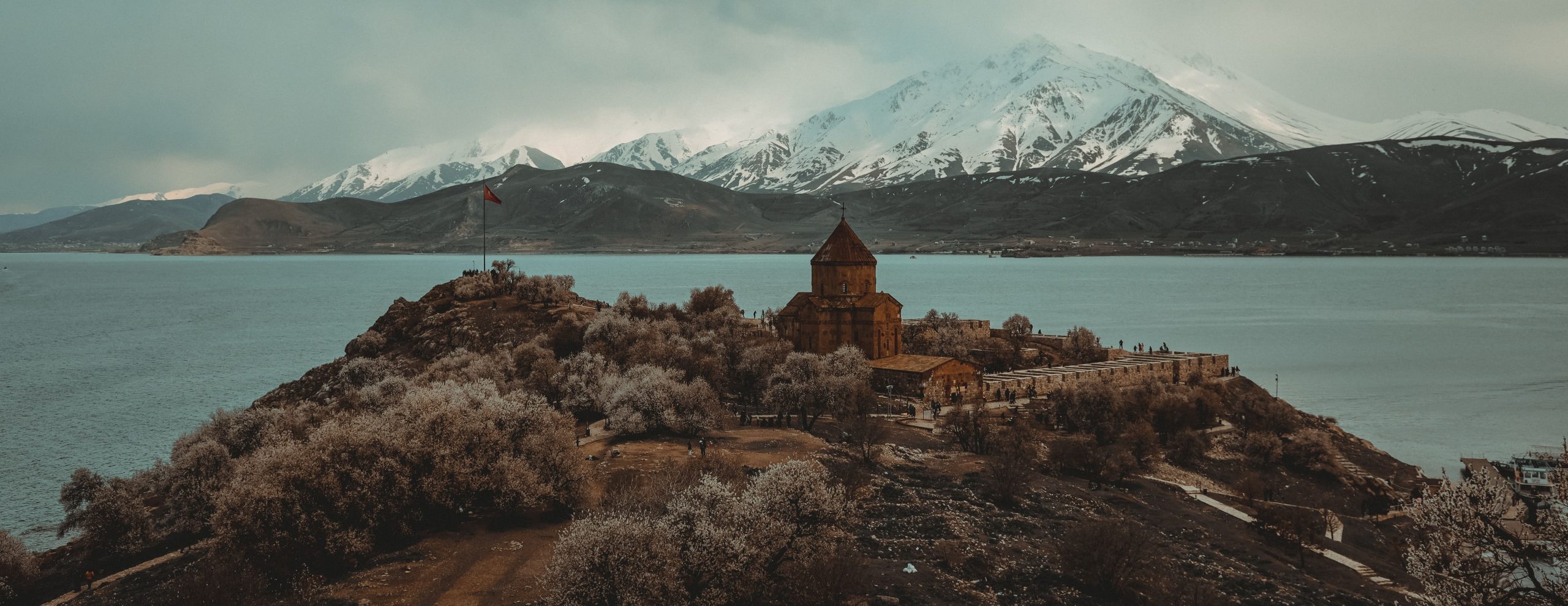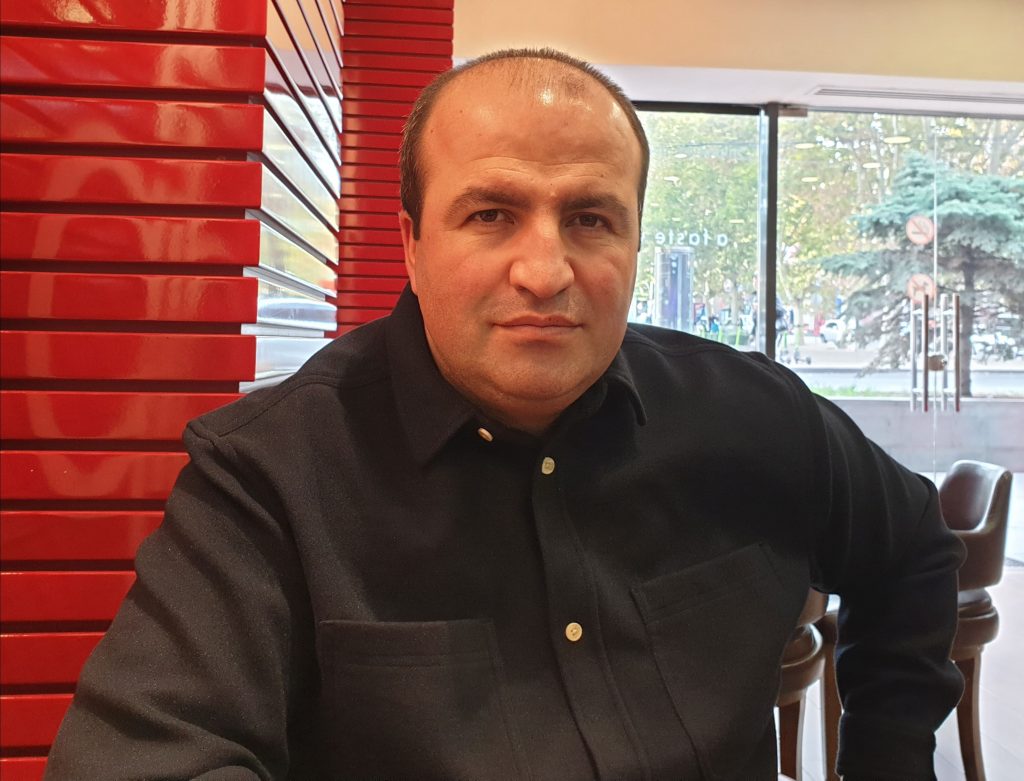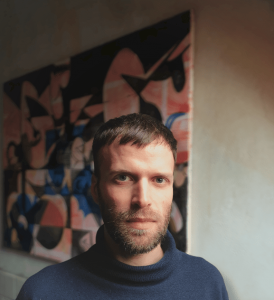by Dénes Jäger

One evening in November, the display board at Istanbul’s Sabiha Gökçen Airport reads “23:35 – Departure for Yerevan.” What seems like an ordinary flight connection is much more: Since 1993 most communication between Turkey and Yerevan had come to a halt. Following the first Karabakh war between Armenia and Azerbaijan, Turkey closed its 311-km long border and effectively cut off Armenia westwards from any direct commodity flows. However, as a first sign of a thaw in relations, daily flights between Yerevan and Istanbul resumed in February 2022. This evening at the gate, bits and pieces of conversations in Armenian and Turkish can be heard but most passengers speak Russian. Since Moscow’s attack on Ukraine, Istanbul and Yerevan have become hubs for connections to and from Russia.
Air travel well illustrates the ambivalence in the Armenia-Turkey relationship, which cannot be understood without the respective relations with Russia and Azerbaijan. Turkey and Armenia have had different intensity of dialogue over the course of more than 30 years – from absolute silence to short-lived talks during the time of the so-called football diplomacy. However, it was the result of the last war in Nagorno-Karabakh that led Armenia’s leadership to reach out again to Ankara.
Just as the contested strip of land is sometimes called differently in Armenian (Artsakh) and Azerbaijani (Karabakh), the numerous deadly conflicts over the mountainous terrain have different names considering each party’s perspective: In Armenian, the latest several week-long armed conflict in 2020 is simply referred to as “44-Day War” whereas in Azerbaijan it is also got the addendum of “Patriotic War”. Nomenclature aside, it was bloodshed with thousands of casualties on both sides that changed the power dynamics in the region in favor of Azerbaijan and its close ally Turkey. “Armenia was never in a weaker position in its history,” asserts Tatul Hakobyan, who wrote a book about the war and is probably one of the best-informed civilians about the current state of affairs in the field. During the 44-Day War he was reporting on the front lines in Karabakh and has since been monitoring the latest skirmishes and shifts of borders. According to him, the war disillusioned people in Armenia, who believed to have the strongest army in the region – a myth that stood firm since the end of the first war in 1994.
The core of the ongoing conflict over Nagorno-Karabakh can be traced back to the drawing of borders after the Red Army conquered the area. The landlocked mountainous region was predominantly populated with Armenian speakers, yet it became an autonomous administrative entity within the Azerbaijani Soviet Socialist Republic. During the last years of the Soviet Union, the Armenian population of Nagorno-Karabakh demanded unity with Armenia fearing an expanded Azerification of their homeland. A bloody six-year-long war unfolded with atrocities on both sides that resulted in a de facto independent Republic of Artsakh and the Armenian army conquering seven neighboring Azerbaijani provinces – including a corridor between the enclave and mainland Armenia.
In 1993 Turkey sought to increase its influence on the newly independent former Soviet Republics with a Turkic-speaking majority such as the Central-Asian Kyrgyz Republic or Azerbaijan. In this lane, she symbolically closed its border with Armenia, ceased all diplomatic relations, and provided military aid to Baku. But Turkey’s claim to power in the region was not as substantial as it is today, nor were its military means. In 2020 the Turkish support for Baku changed the course of the war substantially: “This war was different from previous conflicts. Due to the superior Turkish technologies, parts of our army simply got crushed,” journalist Tatul Hakobyan explains. In fact, Turkey did not only support Azerbaijan with weaponry, observer groups also confirmed the arrival of hundreds of mercenaries from Turkey-controlled Syria in the war zone.
Turkey’s strong entry to the conflict also ended another prevailing myth among Armenians: that its strategic ally Russia – both countries are part of the Collective Security Treaty Organization – would step in to defend Armenia’s integrity. While Russia and Turkey have an ambivalent friend-foe relationship with several sore spots for example in North Syria and Libya, Moscow wanted to avoid a direct confrontation on the battlefield with Ankara at all costs. What followed was a devastating Armenian defeat on the ground that also changed the perception of Russia in the region. After a ceasefire agreement was brokered, Russian peacekeeper troops and a joint Russian-Turkish monitoring center were installed in Karabakh.
Immediately after the war, Prime Minister Nikol Pashinyan openly sought dialogue with Turkey: “One conclusion the government drew from the war was to look for a way to decrease the Russian economic and strategic dependence. After all, Turkey is Armenia’s biggest neighbor and they closed their border on us,” explains Arshaluis Mghdesyan, TV host and commentator on “Civilnet” media platform. Following the successful joint war campaign, however, Turkey had set Azerbaijan’s demands in Karabakh as a precondition for any negotiations. Moreover, 2023 landmark elections are taking place in Turkey, and it is unlikely that the Turkish President will make a move toward Armenia that is not welcomed by the nationalistic electorate.

Reconciliation with Turkey naturally brings its denial of the Armenian Genocide back onto the table. However, while the recognition of the Genocide might have been a cut-and-dried condition for negotiations before, the war and economic struggles have changed the perception within the Armenian society. “Of course, it was seen as a main obstacle maybe 10, 15 years ago but we have simply other more pressing problems right now. The Genocide issue might still be decisive for the diaspora in Beirut or Paris, but not in Yerevan,” adds “Civilnet” commentator Arshaluis Mghdesyan. The 44-Day War changed the Armenian view on its diaspora when people realized that not even the influential French or US-American Armenians were having any substantial impact on the conflict.
For veteran reporter Tatul Hakobyan the still very loud anti-Turkish sentiment among the diaspora can even be harmful to future negotiations: “On the one hand, the diaspora is of course still important and helping people in Armenia. On the other hand, those people discussing our issues while drinking Armenian brandy in New York don’t understand the security environment in the region and that having relations with Turkey could also mean greater independence for the country.” Considering Armenia’s weak position at the negotiating table, any small step toward normalization is currently welcomed in Yerevan. A few months after opening the airspace for passenger traffic, direct cargo trade between the countries was made possible. It remains to be seen whether this will have an impact on any of the numerous substantial issues between Turkey and Armenia or whether the airspace will become a new symbol for the futility of the reconciliation process – just like the so-called football diplomacy in the mid-2000s.
This article was published within the frames of “Correspondents in Conflict” Project,
implemented by Yerevan Press Club and Deutsche Gesellschaft e. V. The Project is
funded by the German Federal Foreign Office within the “Eastern Partnership Program”.
The contents of this article are the sole responsibility of the implementing partners and can in
no way be taken to reflect the views of the Federal Foreign Office. #civilsocietycooperation
 Dénes Jäger studied Politics and Central Asian Studies in Bremen, Istanbul and Berlin. After positions in various journalistic contexts, he is currently working as project coordinator for the Open Knowledge Foundation in Berlin. His journalistic work often revolves around Turkey’s role in the Caucasus and Central Asia, as well as the tension between culture and sport in the post-Soviet area.
Dénes Jäger studied Politics and Central Asian Studies in Bremen, Istanbul and Berlin. After positions in various journalistic contexts, he is currently working as project coordinator for the Open Knowledge Foundation in Berlin. His journalistic work often revolves around Turkey’s role in the Caucasus and Central Asia, as well as the tension between culture and sport in the post-Soviet area.












